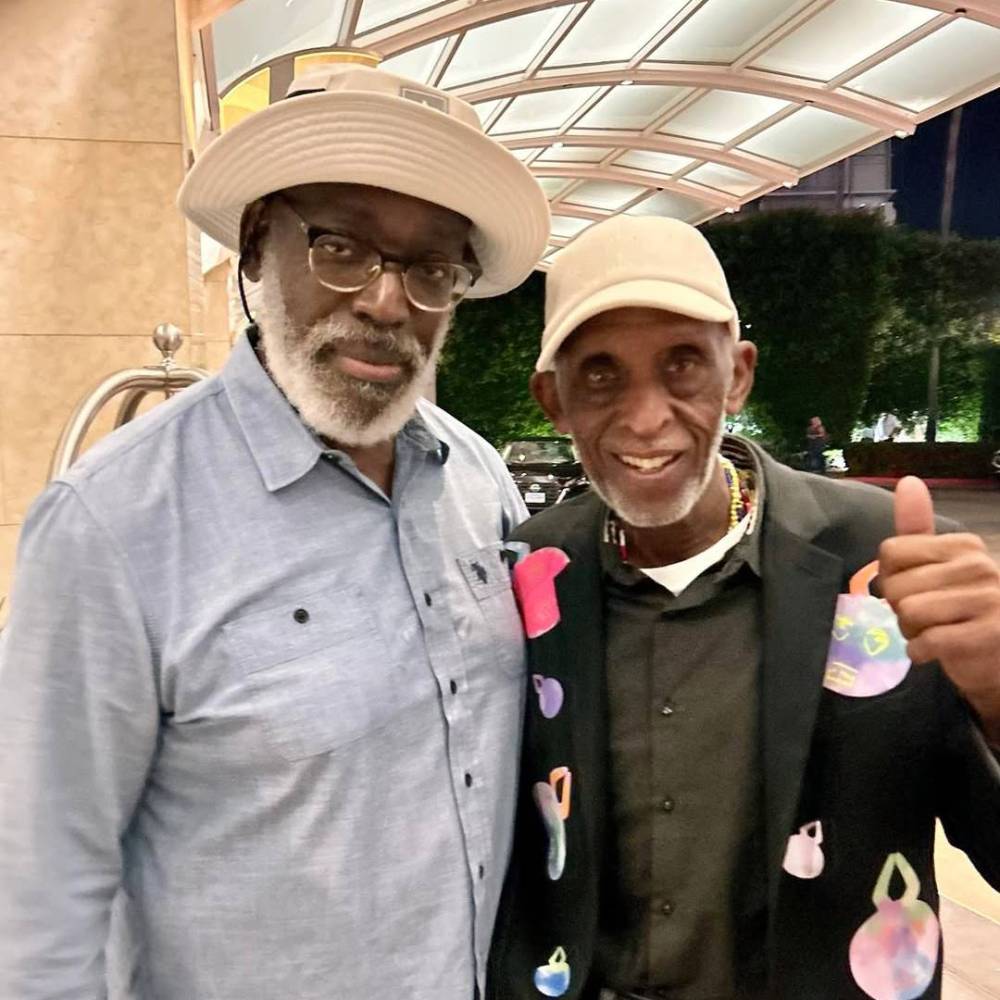Image via Bill Summers/Instagram
You can find Jack Riedy’s upcoming DJ sets on his Instagram.
It’s hard to avoid hyperbole with Head Hunters, Herbie Hancock’s 1973 jazz-rock Frankenstein’s monster whose riffs have become universal without draining the original four track LP of its power over five decades after its release. UC Berkeley-trained percussionist Bill Summers was a key part of Hancock’s new fusion ensemble, most evident in the head-expanding collage of handclaps, falsetto vocals, penny whistle, shekere, and beer bottles that opens “Watermelon Man.” Though without songwriting credit, he did not receive any revenue from the dozens of times his part has been sampled.
Summers played with Hancock for several years in the ’70s, then became bandleader of the Headhunters when they split off as their own group and released seven albums between 1975 and 2022. Along the way, Summers studied ancient rhythms of ceremonial music as part of African fraternity Anya and lent his Afro-Cuban percussion style to Quincy Jones, Stevie Wonder, Patrice Rushen, and many more.
I went out on a cold wet weeknight in January to see the Headhunters promoting last fall’s album The Stunt Man at SPACE in Evanston, where the 250-seat room was filled to capacity with still-hip boomers clutching wine glasses and CBD colas. Perhaps due to our proximity to Northwestern University, the audience had an academic vibe as we grooved in our seats and chuckled at the band’s banter. Only Summers and drummer Mike Clark remain of the original lineup; Clark reflected warmly on his long career, but noted with faux-cheeriness that “Herbie made millions, Bill and I made hundreds!”
“Watermelon Man” was the tune we’d all been waiting for, and Summers’ whistling intro gave me chills. The song was even looser than on the record, refined as the result of decades of practice. A groove in the purest sense.
Nothing could top that, but the band did play a few more songs, including Wayne Shorter’s “ESP,” a taste of Sly and the Family Stone’s “Thank You,” and a solo bass rendition of “Amazing Grace.”
Summers noted that bassist Frank Russell was a Chicago local who had agreed to the gig that morning when Chris Severin got stuck in New Orleans’ “smogageddon.” Russell was clearly touched by the praise and the applause. “I’ve been playing along to these guys since I was 16,” he said. “I’m 67 now.” When the lights came up, Summers and Clark lingered to shake hands, sign LPs, and offer advice to eager young jazzheads.
The Headhunters have several shows this spring in Summers’ home of New Orleans, and they will perform at clubs and jazz festivals throughout the country this summer. I spoke to Summers over the phone one evening a few days before the Evanston show. The conversation felt like office hours with a beloved professor, one who just happened to play on some of the funkiest tracks ever committed to wax.

